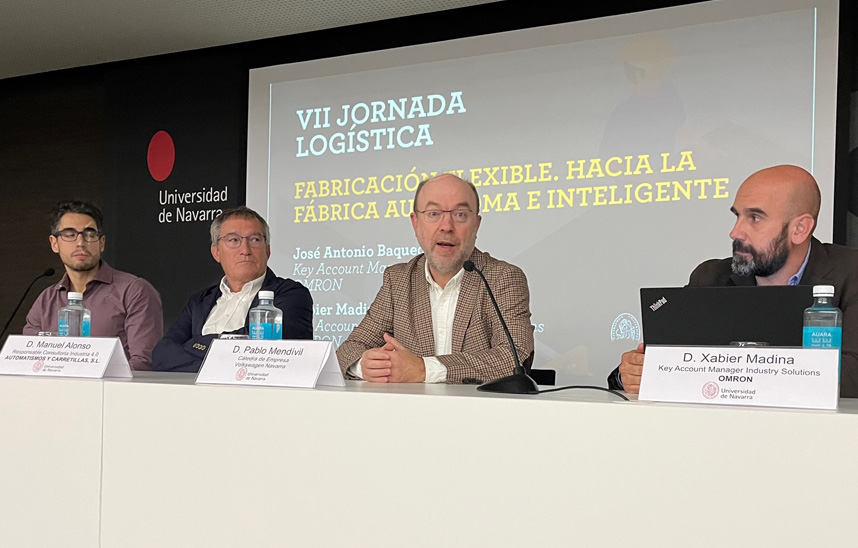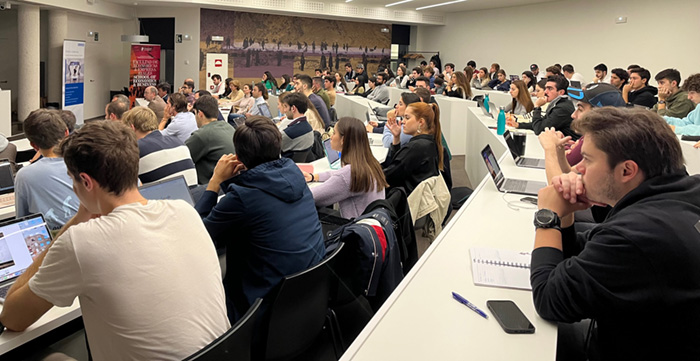Flexible and customized production, the big challenge of today's factories
More than 100 students and professionals attend the University of Navarra's conference Logistic

PhotoManuelCastells/
"Factories are faced with the challenge of making production more flexible, which must be mass-produced and also customized. All this leads us to produce many batches of little Issue and the need for autonomous and intelligent factories". This was stated by Xabier Madina, from OMRON Industrial Automation Europe, at the conference Logistics organized by the University's School of Economics at partnership with Chair Volkswagen Navarra.
In an edition that addressed automation as a factor core topic to understand the future of logistics in the business environment, Madina said that the dynamism of the market is forcing us to rethink the way we produce. In his speech he pointed out three main vectors of change: social, technological and environmental.
In this context, he argued that there is currently a shortage of skilled workers, an aging workforce and noted that many companies are relocating with a clear tendency to bring production, which must be sustainable, closer to consumers.

Order picking, 55% of the company's operating expenses, is the storeroom
Manuel Alonso, from Automatismos y Carretillas S.L., likened today's warehouses to a game of Tetris: "Pallets are left where there is a free space, and are relocated as they are needed. This leads to poor stock control, losses due to damage, stressed people or more risks." In this regard, he indicated that picking or order preparation represents 55% of the operating costs of a storeroom and stressed the need to move towards a Tetris 4.0. "It is the world of robotization and management and control of data," he concluded.
Finally, Jorge Uceta Rodriguez, from ID Logistics, spoke about automation and robotization applications in distribution logistics and their advantages. "Automation means an ergonomic improvement for the worker, the training and learning curve is in hours and not days, and eliminates tasks such as operator movements, filming or labeling of pallets," he said. In addition, he indicated that this commitment to robotization also means an improvement in production, with 'free' boxes being prepared, real-time information on the status of the warehouse and improved quality and safety due to the simplification of processes".




